Have you ever wondered how long your dreams actually last? Many people believe that dreams only last for a few seconds, but is this really true? In this article, we’ll explore the fascinating world of dream duration and uncover the truth behind this common misconception.
Key Takeaways:
- The duration of dreams can vary greatly and is not limited to just a few seconds.
- The perception of time in dreams can be distorted, with time feeling elongated or shortened.
- Dreams may play a role in memory consolidation and can be influenced by various factors such as sleep cycles and individual differences in dream recall.
- Lucid dreaming allows individuals to exert some control over the dream experience, including dream duration.
The Perception of Time in Dreams
Have you ever had a dream that felt like it lasted for hours, only to wake up and realize that it had only been a few minutes? Or maybe you’ve had the opposite experience, where a dream that felt like it passed by in a flash turned out to have lasted for much longer than you thought. It’s not just you – the perception of time in dreams can be vastly different from our waking experience.
According to research, the duration of a dream can vary from a few seconds to as long as an hour. However, the perceived time within a dream is often distorted. One study found that dream time can feel up to 30 times longer than waking time, while another study reported that some participants experienced dreams that lasted for what felt like days or even weeks.
So why does time perception in dreams differ from our waking experience? One theory is that the brain processes time differently during sleep. Another theory suggests that the lack of external stimuli during dreams can lead to a distorted sense of time.
It’s important to note that the perception of time in dreams can also be influenced by the content of the dream itself. For example, dreams that are more emotionally intense can feel longer than those that are less emotionally charged.
Overall, the perception of time in dreams is still not fully understood, but what we do know is that it can vary greatly from the duration of a dream in real time. So the next time you have a dream that feels like it lasts for hours, remember – it might not have been as long as it seemed.
The Science Behind Dream Duration
While the perception of time in dreams can be distorted, the actual duration of a dream is a more concrete measurement. Research has shown that dreams can last anywhere from a few seconds to 30 minutes or more.
The length of a dream can be influenced by various factors, including the stage of sleep and the individual’s sleep cycle. Dreams tend to occur during REM (Rapid Eye Movement) sleep, which is one of the stages of the sleep cycle. During REM sleep, the brain is more active and the body is more relaxed, which can lead to more vivid and memorable dreams.
It’s also worth noting that individuals can have varying levels of dream recall. Some people remember multiple dreams each night, while others may not remember any at all. This can make it difficult to accurately measure the duration of dreams across different individuals.
Despite these variables, the scientific research on dream duration has shed light on the fact that dreams can last much longer than the commonly believed 3-second myth. So if you’re ever curious about how long your dreams really last, know that the answer is likely much more complex than a simple 3-second rule.

The Science Behind Dream Duration
So, how long do dreams actually last? While it’s difficult to establish an exact duration for all dreams, scientific research has helped shed some light on this mysterious topic.
A study conducted by the National Sleep Foundation found that the average person spends about two hours each night dreaming. However, the length of individual dreams can vary from a few seconds to over an hour.
Researchers have also identified a correlation between the duration of sleep cycles and the length of dreams. During the rapid eye movement (REM) stage of sleep, which is when most dreaming occurs, the duration and frequency of dreams tend to increase.
It’s important to note that not all dreams are created equal in terms of length and complexity. Some dreams may be brief and fragmented, while others can be incredibly vivid and immersive, feeling like they last for hours.
Additionally, individual differences in dream recall can also impact our perception of dream duration. Some people may have better memory of their dreams, and therefore, their dreams may feel longer and more detailed than those who have difficulty recalling their dreams.
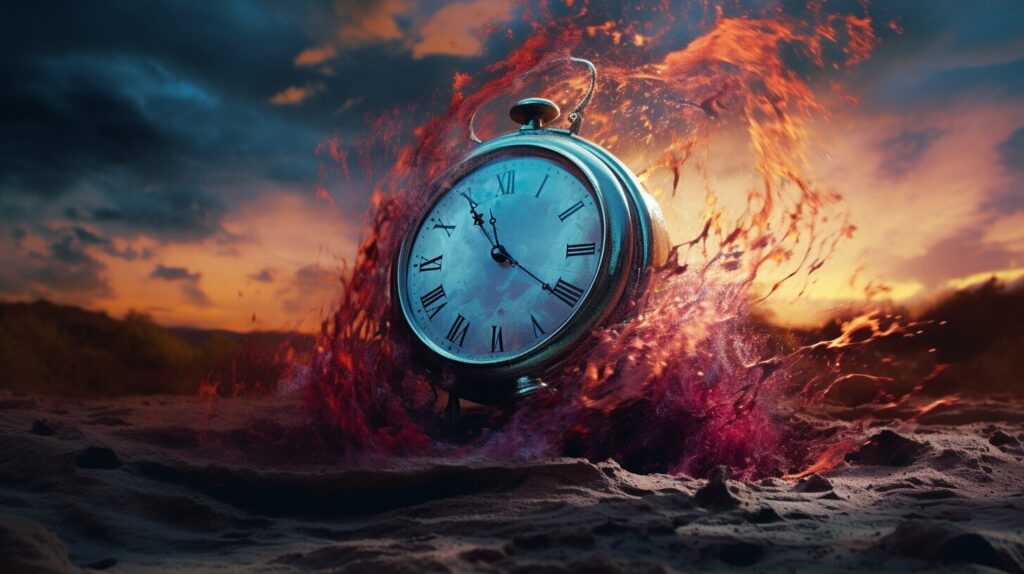
The Science Behind Dream Length
Another aspect of the science behind dream duration is the question of dream length. While some dreams may be brief and superficial in nature, others can be much longer and more complex.
Research has shown that the content of our dreams can impact their length. Dreams that are emotionally charged or involve a lot of sensory input may feel longer and more vivid than those that are less intense.
Additionally, the stage of sleep in which a dream occurs can also impact its length. Dreams that occur during the later stages of REM sleep, for example, may be longer and more complex than those that occur earlier in the sleep cycle.
Factors Affecting Dream Duration
As we’ve seen, dreams can last anywhere from a few seconds to up to an hour, but what factors influence the duration of our dreams?
One major factor is the sleep stage in which the dream occurs. Most dreams take place during Rapid Eye Movement (REM) sleep, which occurs about 90 minutes after we fall asleep and lasts for about 20-25% of our total sleep time. During this stage, our brain is highly active and our eyes move rapidly beneath our eyelids. Dreams during REM sleep tend to be longer and more vivid than dreams that occur during non-REM sleep.
Another important factor is the individual’s sleep cycle. Our sleep cycles consist of multiple stages that repeat throughout the night, with each cycle lasting about 90 minutes. Dreams are more likely to occur towards the end of each cycle, particularly during REM sleep.
Finally, personal differences in dream recall can also play a role in the duration of our dreams. Some people may have more vivid dreams that feel longer simply because they are better at recalling the details of their dreams upon waking.
It’s important to note that while these factors can influence the duration of our dreams, there is a wide range of variability in dream length and duration, making it difficult to make generalizations about how long a dream “should” last.
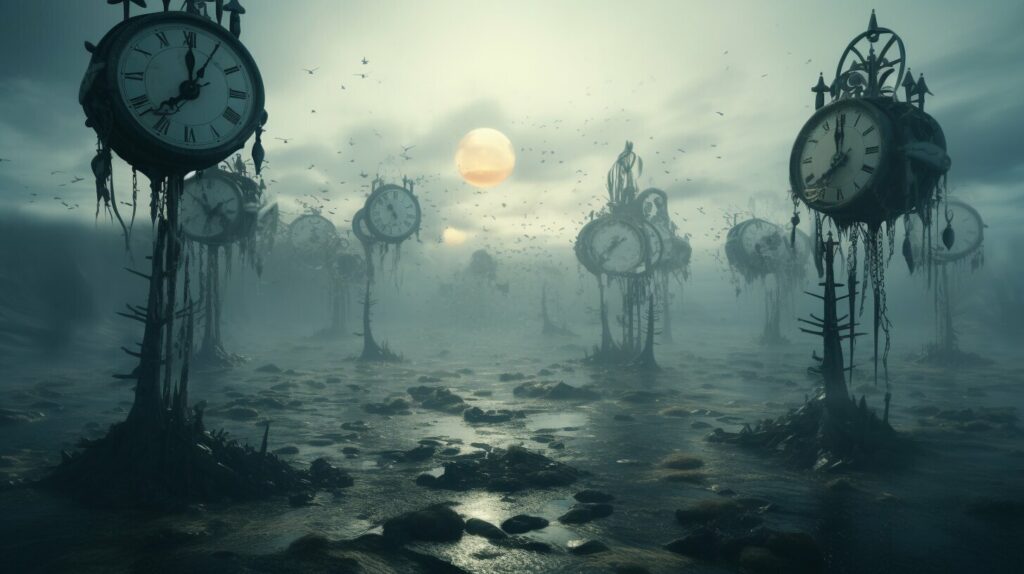
Dreams and Memory Consolidation
Have you ever woken up from a dream feeling like you just experienced something significant, something that you need to remember? While the duration of dreams can vary, one of their main functions is believed to be related to memory consolidation.
During sleep, our brain processes and stores information from the day, transferring it from short-term memory to long-term memory. Dreams are thought to play a role in this process by reactivating and consolidating memories.
A study published in the journal Current Biology found that participants who were more likely to experience vivid, complex dreams also showed an improvement in their motor skill performance the following day. The researchers suggest that this may be due to the role of dreams in consolidating memories related to motor skills.
It’s important to note that while dreams may assist in memory consolidation, they do not guarantee it. Not all dreams are related to memory and not all memories are consolidated during sleep. However, the connection between dreams and memory consolidation is an area of ongoing research.
“Dreams are thought to play a role in memory consolidation by reactivating and consolidating memories.”
So, how does this relate to the duration of dreams? It’s possible that the intensity or emotional significance of a dream can influence our perception of its duration. A dream that feels particularly vivid or emotionally charged may seem to last longer than a more mundane dream.
Additionally, dreams that occur during the later stages of sleep, when REM cycles are longer, may also feel longer in duration. This is because REM sleep is when the brain is most active and when we typically experience the most vivid dreams.
Overall, while the exact relationship between dream duration and memory consolidation is still being studied, there is evidence to suggest that our perception of dream time may be influenced by the emotional significance of the dream and the sleep stage during which it occurs.

The Experience of Dream Time
When it comes to the perception of time in dreams, everyone’s experience is unique. Some dreams feel like they last for hours, while others seem to pass by in an instant. Personally, I’ve had dreams that felt so long and vivid that I woke up feeling like I had lived an entire day in my sleep. On the other hand, I’ve also had dreams that ended so abruptly that I was left wondering if I had actually been asleep at all.
The experience of dream time can be influenced by a variety of factors, from the content of the dream to an individual’s state of mind. For example, dreams that are particularly emotionally charged can feel like they last longer than they actually do. Additionally, when an individual is in a state of deep relaxation or meditation, time perception can be altered in both waking and dreaming states.
Interestingly, it’s been suggested that the perception of dream time may be related to the amount of neural activity occurring during a dream. According to a study by researchers at the University of California, Berkeley, during REM sleep (the stage of sleep when most dreaming occurs), there is a higher level of brain activity compared to other stages of sleep. This increased activity may contribute to the sense of time dilation that some individuals experience during dreams.
In any case, the experience of dream time is undoubtedly a fascinating aspect of the dream experience, and one that can vary widely from person to person.
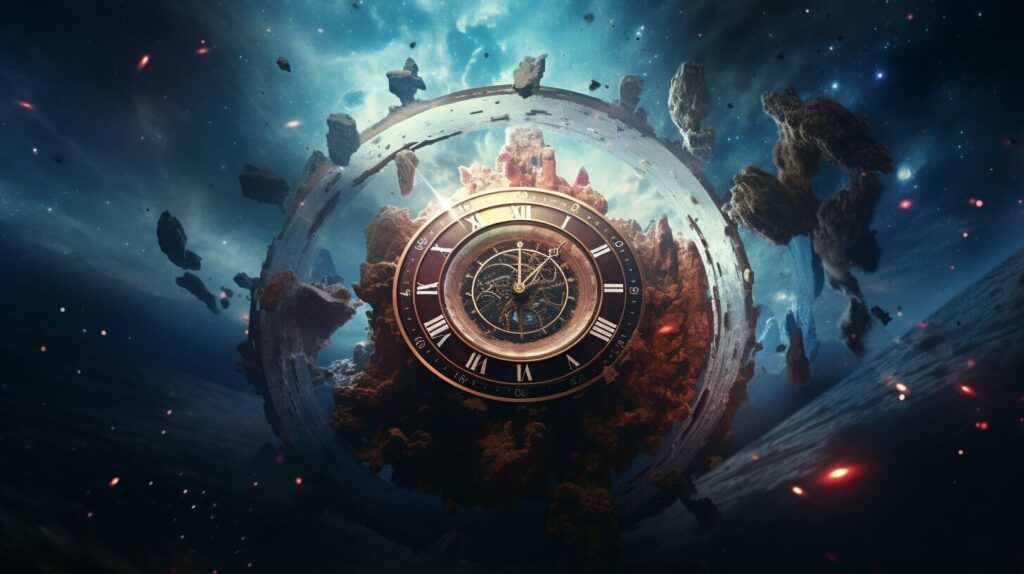
Debunking the Myth: Dreams Last Longer Than 3 Seconds
It is a common belief that dreams only last for a few seconds, but this is a myth that has been debunked by scientific research. Dreams can actually vary in length and can feel like they last for much longer than a few seconds.
According to a study conducted by the National Sleep Foundation, the average length of a dream is between 5 and 20 minutes. However, some dreams can be as short as a few seconds, while others can feel like they last for hours.
The perception of time in dreams can also influence how long they feel. Time can feel elongated or shortened during dream experiences, leading to a distorted sense of duration.
“Dreams can last anywhere from a few seconds to over an hour. The perception of time in dreams can often make them feel much longer or shorter than they actually are.”
Sleep cycles and stages can also play a role in the duration of dreams. Dreams tend to occur during the rapid eye movement (REM) stage of sleep, which can last anywhere from a few minutes to over an hour. The length of REM cycles can vary throughout the night, impacting the frequency and duration of dreams.
Individual differences in dream recall can also affect the perceived duration of dreams. Some people may have more vivid and memorable dreams, while others may struggle to remember any details from their dreams.
It is important to note that dreams can also have a significant impact on memory consolidation and emotional processing. Dreams can serve as a way for the brain to process and consolidate new information, which can influence the perceived duration of dreams.
So, while dreams may not always last for hours on end, they certainly last longer than just a few seconds. The idea that dreams only last for 3 seconds is just a myth that has been disproven by scientific research.
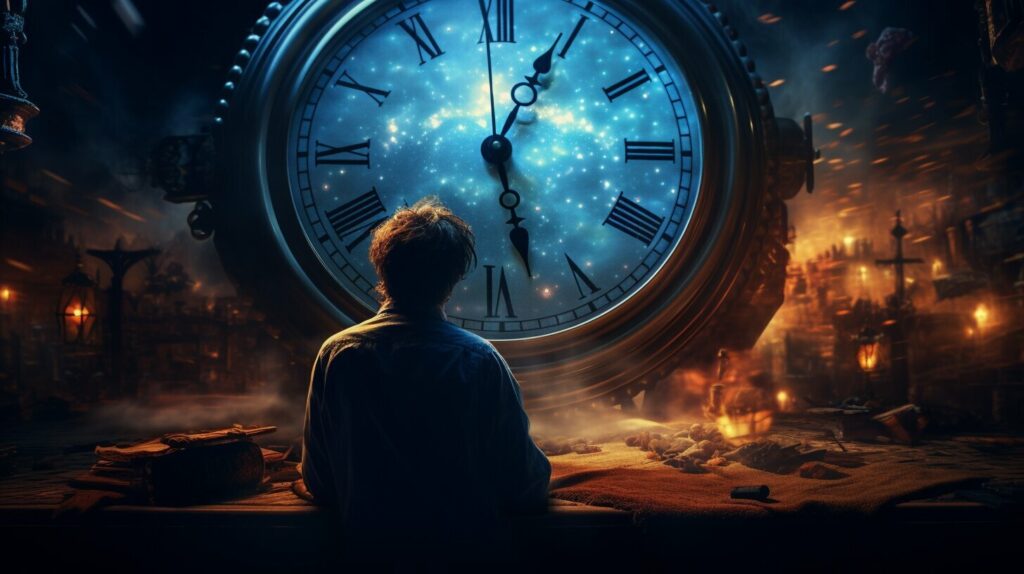
Dream Duration and Lucid Dreaming
Lucid dreaming is a state of consciousness where individuals are aware that they are in a dream and can exert control over their dream experience. This phenomenon can also affect the perception of dream time and duration.
Research has shown that lucid dreams can feel longer than non-lucid dreams. In a study published in the journal Sleep, researchers found that participants who experienced lucid dreams estimated their dream duration to be longer than participants who had non-lucid dreams. This suggests that the ability to control the dream experience can influence the perception of time in dreams.
There are various techniques that individuals can use to induce lucid dreaming, such as reality testing, dream journaling, and visualization exercises. These techniques can increase the likelihood of becoming aware that you are dreaming and allow you to potentially manipulate the duration of your dream.
It is important to note that the experience of lucid dreaming and its effects on dream duration can vary greatly among individuals. Some people may find it easier to enter a lucid dream state, while others may struggle with the concept altogether.
In any case, the phenomenon of lucid dreaming highlights the potential for individuals to alter their dream experiences, including the duration of their dreams. By practicing lucid dreaming techniques, individuals may be able to explore longer dream experiences and gain greater control over their unconscious minds.
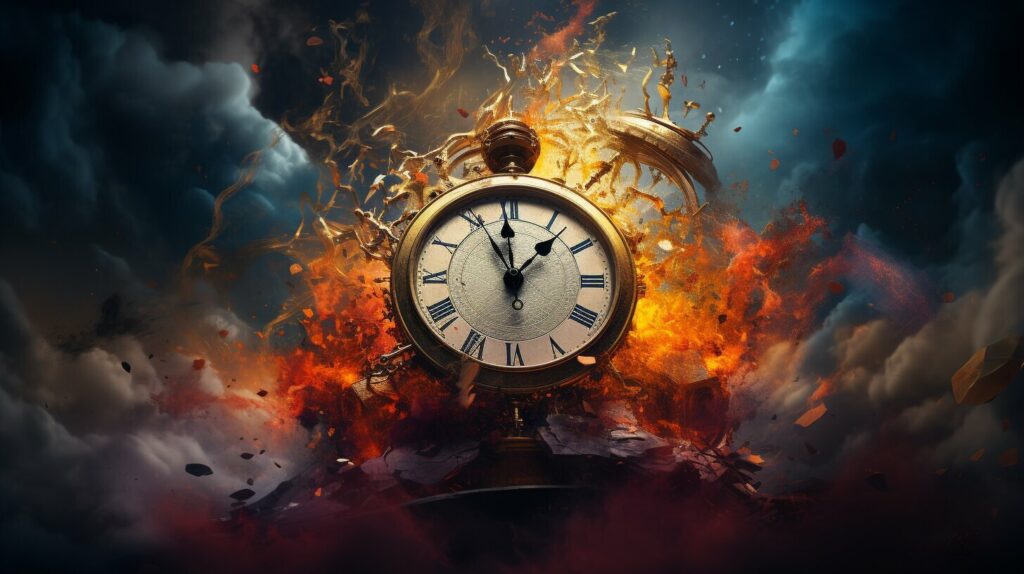
Dream Duration: Varying and Unpredictable
After exploring the various factors that can influence the duration of dreams, it’s clear that there is no straightforward answer to the question of dream duration. Dreams can vary in length depending on a multitude of factors, including the individual, their sleep stages, and the content of the dream itself.
It’s important to note that the commonly held belief that dreams only last for a few seconds is just that – a belief. Studies have shown that dreams can actually last anywhere from a few seconds to as long as an hour or more.
The Role of Memory Consolidation
One key factor that can impact the perceived duration of dreams is the role they play in memory consolidation. Dreams have been shown to help us process and consolidate memories from waking life, which can make the dream experience feel longer or more vivid than it actually was.
Lucid Dreaming and Altered Dream Duration
Another phenomenon that can influence dream duration is lucid dreaming. When individuals become aware that they are dreaming, they may be able to exert some control over the dream experience, including the duration of the dream itself. Some people report being able to extend or shorten their dreams at will when in a lucid dream state.
Overall, it’s clear that dream duration is a complex and unpredictable aspect of the dream experience. By understanding the various factors that can influence it, we can begin to gain a better understanding of the mysterious and ever-fascinating world of dreams.
FAQ
Q: Do dreams last for 3 seconds?
A: No, dreams do not necessarily last for only 3 seconds. The duration of dreams can vary greatly from person to person and even within the same individual’s dream experiences.
Q: What is the perception of time in dreams?
A: In dreams, time can feel elongated or shortened. Some dreams may seem to last for hours, while others may feel like they pass by in an instant. The perception of time in dreams is subjective and can vary based on the dream scenario and the dreamer’s perception of time.
Q: Is there any scientific research on dream duration?
A: Yes, there have been studies conducted to examine the length and duration of dreams. While it is difficult to accurately measure the exact duration of dreams, research suggests that dream experiences can range from a few minutes to over an hour.
Q: What factors can affect dream duration?
A: Various factors can influence the duration of dreams. Sleep cycles, sleep stages, and individual differences in dream recall can all play a role in how long dreams are perceived to last.
Q: How do dreams impact memory consolidation?
A: Dreams have been linked to memory consolidation, the process by which the brain strengthens and stores memories. This can impact the perceived duration of dreams, as dreams that involve vivid or emotionally significant events may feel longer in retrospect.
Q: What are personal experiences of dream time like?
A: Personal experiences of dream time can vary. Some individuals report having vivid dreams that feel like they last for hours, while others may have dreams that seem to pass by quickly. The experience of dream time is subjective and can differ from person to person.
Q: Are dreams restricted to just a few seconds?
A: No, the common belief that dreams only last for a few seconds is a myth. Dreams can vary in length and are not restricted to a specific duration. They can range from a few minutes to much longer periods of time.
Q: Can dream duration be altered in lucid dreams?
A: Yes, in lucid dreams, where individuals are aware that they are dreaming, they may have some control over the dream experience, including the ability to alter or manipulate the duration of the dream.
Q: In conclusion, how long do dreams actually last?
A: The duration of dreams varies from individual to individual and can range from a few minutes to over an hour. Dreams are not limited to just a few seconds and can be influenced by various factors such as sleep cycles, dream recall, and individual experiences.






